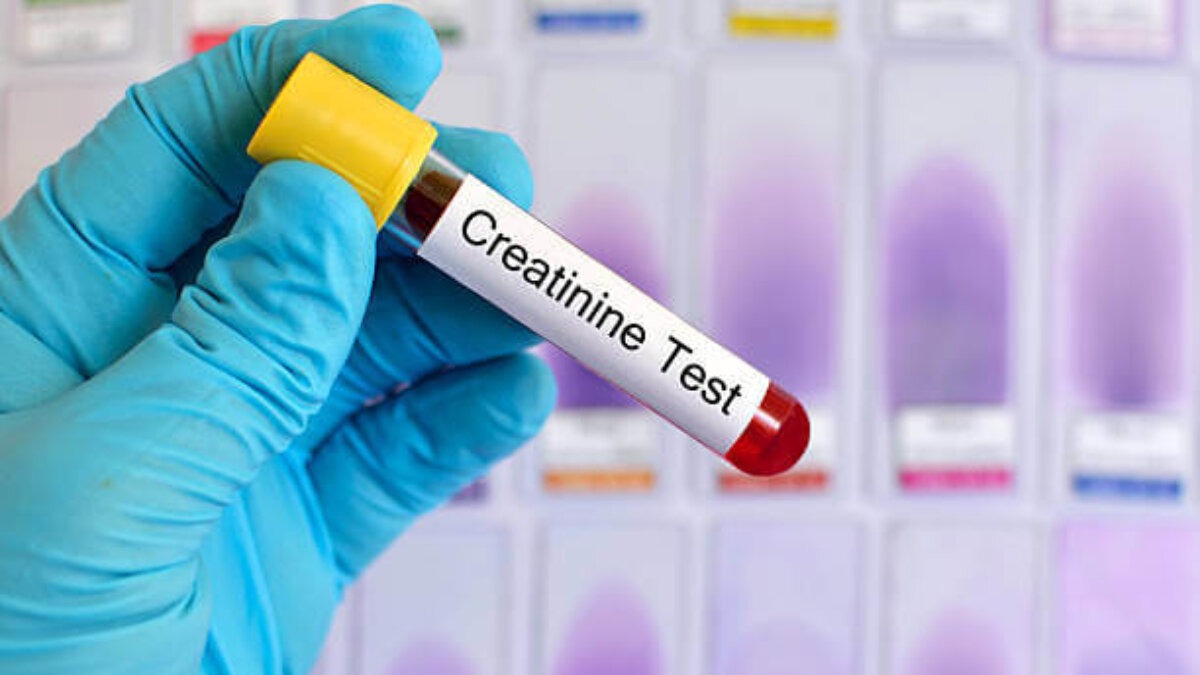The Creatinine Test is a widely-used diagnostic tool to evaluate kidney function. Creatinine, a waste product generated from muscle activity, is typically filtered by the kidneys. Elevated creatinine levels may indicate kidney issues, making this test essential for monitoring kidney health, especially for those with conditions that may impact renal function. This article offers a comprehensive guide on the purpose, procedure, benefits, and other aspects of the Creatinine Test.
Understanding Creatinine and Its Role in the Body
Creatinine is a byproduct of creatine, a molecule stored in muscles that provides energy during muscle contraction. The amount of creatinine produced depends on muscle mass and remains relatively stable. Kidneys filter creatinine out of the blood, releasing it into the urine.
When kidneys function well, creatinine levels stay within a normal range. However, when kidney function declines, creatinine builds up in the bloodstream, indicating potential kidney impairment.
Why Is a Creatinine Test Important?
- Monitors Kidney Function: Creatinine levels directly correlate with kidney efficiency.
- Detects Kidney Diseases Early: The test can identify kidney disorders before symptoms appear.
- Evaluates Progression of Chronic Kidney Disease (CKD): The test helps track disease progression in diagnosed patients.
- Assesses Medication Impact: Certain medications affect kidney function, so regular monitoring is essential.
- Guides Treatment: For patients with diabetes, high blood pressure, or other health conditions, the test informs necessary treatment adjustments.
Types of Creatinine Tests
-
Serum Creatinine Test
Measures the level of creatinine in the blood. Often combined with other markers to determine kidney function. -
Creatinine Clearance Test
Measures creatinine in both blood and urine over 24 hours. This test provides a more accurate picture of kidney filtration. -
eGFR (Estimated Glomerular Filtration Rate)
Calculates kidney filtration rate based on serum creatinine, age, gender, and body size, providing insight into overall kidney health.
When Should You Get a Creatinine Test?
A doctor may recommend a Creatinine Test if you:
- Experience symptoms like fatigue, swelling, or high blood pressure.
- Have chronic conditions like diabetes or hypertension.
- Are on medications affecting kidney function.
- Have a family history of kidney disease.
- Are diagnosed with conditions like lupus, which may impact kidney health.
Preparation for the Creatinine Test
The test usually requires minimal preparation. For a serum creatinine test, fasting isn’t generally necessary, although specific instructions may vary. For a creatinine clearance test, you’ll need to collect urine over 24 hours. Staying hydrated and avoiding strenuous exercise before the test is also recommended, as dehydration and intense activity may alter creatinine levels.
Procedure for the Creatinine Test
-
Serum Creatinine Test
- A healthcare professional will draw a blood sample from your arm.
- The process is brief and typically painless, with results available within a day.
-
Creatinine Clearance Test
- Collect all urine over a 24-hour period.
- A lab technician will measure creatinine in both urine and blood.
- Results give a detailed view of kidney function.
-
eGFR Test
- Often included with the serum creatinine test.
- eGFR values are calculated from the serum creatinine levels.
Interpreting Creatinine Test Results
Creatinine levels are measured in milligrams per deciliter (mg/dL). Normal ranges may vary based on factors like age, gender, and muscle mass.
- For Men: Normal range is 0.6 – 1.2 mg/dL.
- For Women: Normal range is 0.5 – 1.1 mg/dL.
High levels may indicate kidney dysfunction, dehydration, or certain medications. Low levels are rare but can result from conditions like muscular dystrophy, severe liver disease, or extreme weight loss.
Factors That Influence Creatinine Levels
- Age and Gender: Muscle mass declines with age, often leading to lower levels in elderly people.
- Diet and Exercise: High-protein diets and intense exercise temporarily raise creatinine.
- Medications: Some antibiotics and pain relievers affect kidney function.
- Health Conditions: Diabetes, hypertension, and other chronic illnesses increase kidney strain.
Creatinine Test in Chronic Kidney Disease (CKD)
For individuals with CKD, regular creatinine testing is crucial for monitoring kidney function. eGFR, calculated from serum creatinine, stages CKD from 1 (mild) to 5 (kidney failure), guiding treatment. Lowering blood pressure, managing blood sugar, and following a kidney-friendly diet can help slow CKD progression.
Creatinine Test for Diabetics
Diabetes puts significant strain on kidneys. Diabetic patients should undergo regular creatinine testing as part of their health management. High blood sugar damages kidney vessels, and early testing can prevent severe complications. Monitoring creatinine helps assess how diabetes impacts renal health and aids in adjusting treatments.
Benefits of the Creatinine Test
- Early Detection of Kidney Issues: Helps identify kidney problems before they become severe.
- Monitors Chronic Conditions: Essential for managing CKD, diabetes, and hypertension.
- Adjusts Treatment Plans: Results guide medication and lifestyle changes.
- Assesses Overall Health: The test provides insight into kidney function, which impacts other organs.
- Informs Dietary Adjustments: Results can help modify diet for better kidney support.
Limitations of the Creatinine Test
Although valuable, the Creatinine Test has limitations. It may not detect early kidney issues in young or highly muscular individuals due to natural variations in creatinine. Creatinine levels may also fluctuate with dehydration, diet, and medication. Doctors may use additional tests like blood urea nitrogen (BUN) and imaging for a comprehensive evaluation.
Creatinine Levels: Normal vs. Abnormal
- Normal Creatinine: Indicates healthy kidney filtration.
- Elevated Creatinine: Suggests kidney impairment, dehydration, or high muscle mass.
- Low Creatinine: Rare but could indicate liver or muscle disease.
A single abnormal result doesn’t confirm kidney disease; doctors usually recommend follow-up testing.
Reducing Elevated Creatinine Levels
If creatinine levels are high, lifestyle changes can help reduce the burden on kidneys:
- Stay Hydrated: Proper hydration aids kidney filtration.
- Limit Protein Intake: Lowering protein can ease kidney strain.
- Avoid Excessive Exercise: Moderation prevents muscle breakdown.
- Monitor Blood Pressure and Sugar: Helps prevent kidney damage.
- Avoid Nephrotoxic Medications: Consult your doctor before taking painkillers or NSAIDs.
Alternative Tests for Kidney Function
- Blood Urea Nitrogen (BUN): Measures nitrogen levels in blood, another indicator of kidney health.
- Cystatin C Test: A blood test that may detect kidney dysfunction sooner than creatinine.
- Microalbumin Urine Test: Detects albumin in urine, often an early indicator of kidney disease.
Choosing a Diagnostic Center for the Creatinine Test
When selecting a diagnostic center, look for:
- Accreditation: Choose centers certified by NABL for quality.
- Advanced Equipment: Updated technology ensures accuracy.
- Experienced Staff: Trained professionals provide reliable testing.
- Location and Accessibility: Convenient locations make regular testing easier.
- Cost-Effective Packages: Many labs offer discounted health packages, which include kidney function tests.
Conclusion
The Creatinine Test is a crucial tool for monitoring kidney health, detecting potential issues, and managing chronic conditions. Regular testing can aid in early disease detection, guiding proactive steps to maintain kidney function and overall health. For anyone at risk, such as those with diabetes or high blood pressure, consistent creatinine monitoring is vital.




